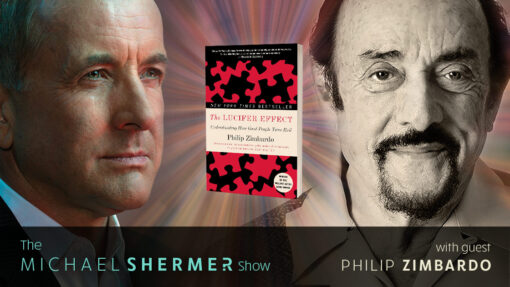Lucifer Effect

Shermer and Pope discuss: SBF and FTX • Bernie Madoff • The Tinder Swindler • gullibility • intentional perps, accidental perps, and righteous perps • innocent bystanders and organizational targets • accidental whistleblowers, noble whistleblowers, and vigilante whistleblowers • identity theft • IRS scams • doping in sports • Frank Abagnale Jr. • Edward Snowden and Julian Assange as righteous perps • Daniel Ellsberg as a noble whistleblower • Phil Zimbardo and The Lucifer Effect • how to tell if…

August 15 marks the 50th anniversary of day one of the Stanford Prison Experiment — one of the most controversial studies in the history of social psychology. In episode 200, Michael Shermer speaks with renowned social psychologist and creator of the Stanford Prison Experiment Philip Zimbardo, exploring the mechanisms that make good people do bad things, how moral people can be seduced into acting immorally, and what this says about the line separating good from evil.
In episode 200, Michael Shermer speaks with renowned social psychologist and creator of the Stanford Prison Experiment Philip Zimbardo, exploring the mechanisms that make good people do bad things, how moral people can be seduced into acting immorally, and what this says about the line separating good from evil.
In this week’s eSkeptic, we bring you a very controversial article on the criminal justice system by investigative journalist Steve Salerno, who previously debunked the self-esteem and self-help movements for Skeptic.
In this week’s eSkeptic, Jennifer McKevitt reviews by Philip Zimbardo’s book entitled The Lucifer Effect: Understanding How Good People Turn Evil.












